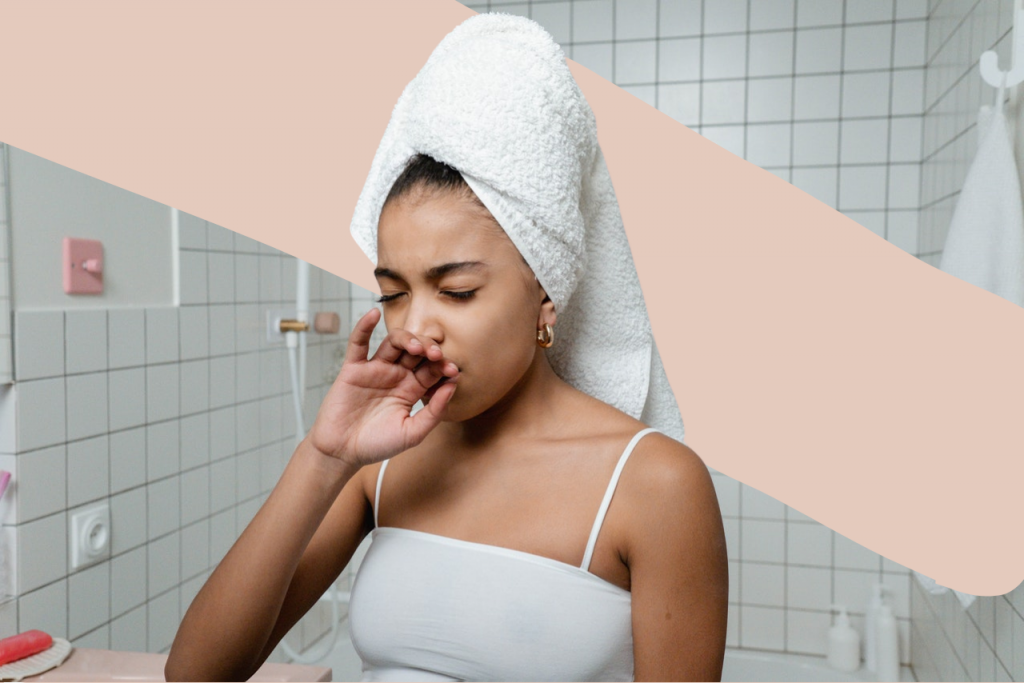Self-care, we think it’s fair to say, isn’t something that simply happens. It’s a constant process of monitoring and evaluating, appraising and amending, of seeing what works and noticing what doesn’t.
It’s also safe to say that bouts of malaise and mood can arrive, unannounced and unexpectedly, even after self-care best practice has been put in place. As the Office for National Statistics reported back in May of 2021, 1 in 5 UK adults had experienced depressive symptoms during the pandemic, with a sense of uncertainty and lack of control likely to lead to further problems in the future.
With all the increased economic uncertainty and global geopolitical upheaval currently happening, we can only imagine that figure has worsened as we enter the second half of 2023.
As such, it’s essential that we’re endeavoring to be kind to ourselves, and to recognise when that might not be happening. With that in mind, here are 7 signs you haven’t made self-care your top priority.
You’re Always Tired
Feeling exhausted may mean that you’re not giving yourself enough space to breathe. Indeed, time management can be particularly tough at this time of year, with parties and engagements, deadlines and dates seemingly filling every available slot in the calendar as the evenings get longer and the weather warmer. We couldn’t agree more.
But if you’re not making space for yourself and granting a few days of ‘me time’ amongst the madness, it’s likely that you’ll suffer from burnout, which can be debilitating and could even lead to long term problems.
Here’s how to make better use of your time:
- Do not overload your schedule
- Add alone time to the calendar
- You can set that alone time before or after work, depending on your habits
- Be honest with yourself on how much you can handle
- Be productive at the time you determine yourself, and not on someone else’s schedule
- Learn how to say no
You could do worse than checking out these tips on how to manage your personal time more effectively, too.
Of course, one of the best things you can do for yourself is to start prioritising your sleep, too. Experts recommend that we should all get between 7 and 9 hours of the good stuff every night to ensure we’re fighting fit and thinking straight. From banishing blue light from the bedroom to paying respect to our circadian rhythm, you’ll find some top tips on making sleep a priority here.

Unexpected, Extreme Weight Change
When you notice that you’ve gained or lost a significant amount of weight, it’s could well be a sign that you haven’t made self-care your top priority. This weight gain or loss can happen for many reasons; however, if weight change is happening faster than what would be considered normal fluctuations (such as during the holidays or after a concerted exercise regime), then it could mean that you haven’t been looking after yourself properly, distracted by the stresses and strains of the everyday.
The concept of self-care is one often misunderstood, but oftentimes, it simply refers to doing the things that are scientifically proven to keep us fit and healthy, day in and day out. And arguably the two best things you can do for yourself? One, eating a balanced diet defined by the 5 food groups: vegetables, fruit, grains, protein and dairy. And two, exercising regularly and sufficiently, which the NHS defines as either 150 minutes of moderate intensity activity or 75 minutes of vigorous intensity activity a week.
Fluctuations in weight may show that you’ve been neglecting to pay attention to this side of yourself, but fortunately, amending these issues needn’t be difficult.
All that said, if you have lost a significant amount of weight, it could be a sign of an underlying health issue, and it’s essential you get in touch with your GP to discuss this further.
High Stress Levels
Persistent stress can have detrimental effects on both mental and physical health.
High stress levels can manifest in a range of symptoms, including feelings of irritability, difficulty concentrating, insomnia or other sleep disturbances, and even physical effects such as headaches, indigestion, or a weakened immune system. In essence, these symptoms indicate that the body and mind are no longer adequately coping with the demands being placed on them.
When our stress levels rise, it is often a sign that we are not devoting enough attention to our own self-care. Self-care encompasses various aspects such as nutrition, exercise, sleep, relaxation, and social connections, and helps to maintain our overall well-being.
Under stressful situations, we may unknowingly compromise our self-care routines by skipping meals, neglecting personal hygiene, or ignoring our emotional health. Despite feeling pressed for time or overwhelmed with responsibilities, neglecting self-care only serves to perpetuate a cycle of increasing stress.
An inability to effectively manage stress may lead us to unhealthy coping mechanisms, such as resorting to alcohol, overeating, or substance abuse, which brings further harm rather than relief. These maladaptive coping strategies can compound our stress levels and may ultimately result in more significant issues, including chronic health conditions and emotional disorders.
Therefore, it is essential to take breaks and moments of reflection, allowing ourselves to understand and respond to our needs in a positive way. Engaging a mindset coach can provide guidance on this journey. By addressing our stress levels and making self-care a priority, we can foster a healthier, more fulfilling life.
You Haven’t Been Exercising Regularly
Sure, the odd rest day (or even week!) is totally normal, and fits the natural ebb and flow of life. But an extended period of downtime away from the gym or the running track, particularly if you’ve been a previously keen exerciser, could well show that low mood is getting in the way of self care.
Not only does dedicated, regular exercise help you release endorphins, but exercising can also help reduce your stress levels and help you sleep better at night, too. The release of those endorphins we mentioned is promoted during and after physical activity, and these feel good chemical messengers can help us feel more positive and able to cope with life’s more challenging situations. And right now, we think it’s fair to say that life could certainly be defined as ‘challenging’.
Neglecting Personal Relationships
Strong social connections are vital for emotional well-being. When self-care is neglected, personal relationships may suffer. And, when personal relationships suffer, self-care may also be further ignored – a vicious circle indeed.
Neglecting personal relationships may be a sign of worsening mental health due to several interconnected factors:
- Isolation: When an individual starts withdrawing from social interactions and personal relationships, it could be an indication that they’re struggling with emotional or psychological issues. This self-isolation can further exacerbate feelings of loneliness, despair, and low self-worth, forming a vicious cycle.
- Lack of support: Personal relationships often provide emotional support and a sense of belonging. Neglecting these connections can deprive individuals of essential coping mechanisms, making it harder for them to manage stress or overcome life’s challenges.
- Change in priorities: A shift in focus away from relationships to other aspects, such as work or excessive hobbies, can indicate an imbalance in the individual’s life. This might be a way for them to escape confronting their emotional or mental health challenges.
- Emotional distress: Mental health issues such as depression, anxiety, or trauma can make it difficult for individuals to maintain healthy relationships. They may withdraw from others due to feelings of inadequacy or fear of burdening their loved ones with their struggles.
- Communication difficulties: Low mood can lead to difficulties in expressing emotions and navigating conflicts, further straining relationships and intensifying the sense of isolation an individual may experience.
Not Taking Pleasure In Things
Anhedonia, or an inability to feel pleasure, is a common symptom of depression and a potential sign that you’ve not been taking your self-care seriously enough. Some common symptoms of anhedonia include a loss of sex drive, a reduced interest in hobbies that you once enjoyed, a diminishing interest in relationships, and social withdrawal.
If you notice any of these symptoms, it may not immediately mean that you’re suffering from low mood, but it’s certainly worth considering that you might not have been prioritising your own wellbeing, and considering treatment. Do remember that experimental self-medication doesn’t always help in these situations, and since responses to typical and atypical depression treatment differ, it’s vital you consult a GP if you notice such feelings of listlessness arising
Read: 5 IDEAL wellbeing exercises to include in your everyday

A Lack Of Concentration
Suffering from a lack of focus and being unable to concentrate on everyday tasks may indicate that self-care has fallen down your priority list. Often, this manifests in a person constantly reaching for their phone, seeking that cheeky dopamine hit which a like on Instagram or a refresh on Twitter provides.
But this tends to be a self-inflicted distraction, and potentially a sign that you haven’t been taking your wellbeing seriously enough. Whilst focusing on self-care should take precedence, there are a few things you can do to improve focus and concentration, too. These include channelling the energy of white noise, practising mindful meditation, and taking short, regular breaks from work…
Well, you didn’t have to tell us twice!
Should low mood be affecting the general to and fro of your everyday life, do check out our guide to 9 free mental health support services available in the UK.
*This article is not intended to replace medical advice, diagnosis or treatment given by a qualified mental health professional. Instead, this article only provides information, not advice. For any medical enquiries, always consult your GP first*





